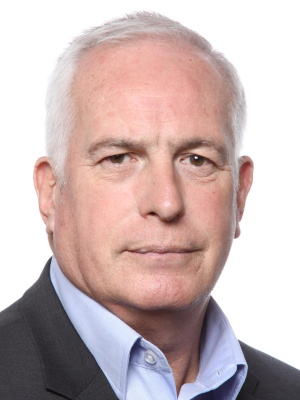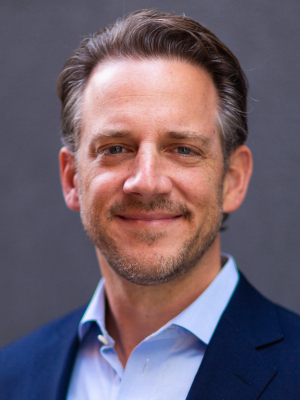The murders of UnitedHealthcare CEO Brian Thompson in December and of four people in a midtown Manhattan office building in July are stark reminders that almost anyone can fall victim to an attack. Living north of the U.S. border offers little protection, considering such incidents as the still-unsolved double homicide of billionaires Barry and Honey Sherman in 2017 and the kidnapping of WonderFi president and CEO Dean Skurka in November.
While family offices may imagine they’re operating in anonymity, Steve Davies, managing partner of the Toronto-based risk management consulting and security service Focus One Group Inc., has news for you.

“You don’t have to be the CEO of a Fortune 500 company to be targeted,” he says. “Wealth, visibility or association with high-profile networks can be enough. Protection is about risk profile, not job title.”
Over 40 years in the field, Davies has provided security for a host of A-list celebrities, including two years doing so for Meghan Markle following the announcement that she was dating Prince Harry.
In his experience, family offices tend to be reactive, not proactive, when it comes to security, even though they often face a range of security concerns that go beyond the principal. These include threats to children, spouses and key staff, as well as vulnerabilities that occur during travel, public events or transitions between properties.
“The rare nature of highly publicized attacks often creates a false sense of security, especially among executives who aren’t accustomed to protective measures,” he says.
Beyond attacks resulting in death, high-net-worth individuals and family offices can face stalking, physical assault, home invasions, reputational attacks, co-ordinated online harassment and attempted extortion.
‘Managing security isn’t on the radar’
Davies’ company generally hears from family offices after they’ve received suspicious emails or an incident has raised security concerns. More recently, they are looking for security coverage for clients who are traveling overseas.
“I was meeting with a large family office the other day, and they mentioned that they’ve never thought about security,” he says. “They manage wealth, investments and real estate, but managing security isn’t on the radar because it isn’t a financial asset.”
Family office clients have earned their lifestyles. They want a sense of security, but they don’t want to be entrapped by it.
Steve Davies, Focus One Group Inc.
Andrew Kirsch, a former intelligence officer with the Canadian Security Intelligence Service and the founder of Kirsch Group Security Consulting in Toronto, explains that some family offices and other wealth organizations have simply outgrown their ideas about the security they need.
“These are large organizations dealing with a lot of money and large transactions,” he says. “But if you talk to them, they think of themselves as a small shop, just doing what they’ve been doing for the past 20 years.”

They should enact more rigorous controls so their security keeps pace with the maturity of their organization, he adds.
Recommendations for the office may include enhanced security controls, better locks, alarm systems or the addition of cameras. Kirsch’s company also performs surveillance sweeps of client premises and stresses the audio and visual integrity of meeting spaces.
“When malicious devices are found, they’re often very low tech,” he says. “For example, somebody turns on the record feature of a cellphone, drops it before a meeting and then picks it up afterwards.”
Conduct a risk assessment
In a risk assessment consultation for individuals, Focus One Group examines the client’s risk profile and offers practical steps to reduce exposure. This begins with a confidential discussion to understand lifestyle, routines, business interests and existing concerns. A comprehensive assessment covers physical premises, digital exposure, travel routines and staff access.
Davies notes that high-net-worth individuals can be most vulnerable outside of their controlled environments—during travel, at public events or online. “Their wealth and visibility make them targets, but it’s their accessibility that often creates the greatest risk,” he says.
Cybersecurity is important because it protects both financial assets and personal information.
“Years ago, people who wanted to do surveillance on high-net-worth families would sit on the street and watch,” Davies says. They now start by trolling through social media pages.
“If a bad guy wants to get to you, he’ll just watch what you’re posting, and you’re doing his work for him.” Even including an email address on a LinkedIn profile may be offering too much information.
Security training is critical
Improving personal security can also include training clients to develop a sense of situational awareness. Being alert to your surroundings includes checking on who’s nearby, where the exits are and what feels out of place.
“In my previous role, when I was in a public meeting in a coffee shop, you never knew which way it was going to go,” Kirsch says. “We were trained on where to sit, and to develop a plan about how to get out. We looked for the cameras in the room so we could signal someone who might be watching, and what furniture we could use to create distance between ourselves and somebody who might be after us. Wherever there’s a possibility of being confronted, you want to make sure you have a plan.”
The rare nature of highly publicized attacks often creates a false sense of security.
Steve Davies, Focus One Group Inc.
Driver training can also improve security. This may include adopting habits as simple as backing into a parking space, so you can leave as quickly as possible in the event of a threat.
Davies also tells clients to stop using their cellphones in public. “They need to look around and be aware of their surroundings and who’s nearby. Is someone you’ve never seen before in the vicinity of your house? Is someone watching or approaching you on the street? But as soon as I leave, many go back to their cellphones. It’s a habit you have to curb.”
‘People with a large security entourage want to get noticed’
Clients and their staff members may also find themselves face to face with confrontational individuals. Learning how to de-escalate a heated situation is an important skill, Kirsch says.
“The answer is not Brazilian jiu-jitsu,” he says. “It’s talking to the person and seeking some way to get voluntary compliance.”
If active protection is required, it typically doesn’t involve large security details. Family offices generally want discreet solutions that include secure transportation, digital monitoring and vetted domestic-staff protocols.
“People with a large security entourage want to get noticed,” Davies says. “High-net-worth and family office clients have earned their lifestyles. They want a sense of security, but they don’t want to be entrapped by it.”
Davies also notes that security services can be more effective when their clients are open with their protectors.
“Developing transparency between high-net-worth families and security services can be challenging,” he says. “They may not want to tell you everything. So you have to polish the crystal ball now and then to see what’s going on and keep your ear to the ground. We work to build respect and trust with our clients so they have no fear of talking to us and let us know what’s going on.”
For family offices and high-net-worth individuals who haven’t considered their security needs, Kirsch suggests they do two simple things.
“Google yourself to see what information is already out there about you,” he says. “And ask yourself who’s responsible if something goes wrong. Those two simple steps may change their feelings about the threat environment they face.”
Peter Kenter is a Toronto-based writer with a deep and abiding interest in how everything in the world works and how it got that way. He’s written about the economy, investing, financial services, cryptocurrency, pharmaceuticals, mining, energy, cannabis, agriculture, consumer electronics, education, sponsorship marketing, and entertainment. He’s the author of TV North: Everything You Wanted to Know About Canadian Television. He loves English bull terriers.
The Canadian Family Offices newsletter comes out on Sundays and Wednesdays. If you are interested in stories about Canadian enterprising families, family offices and the professionals who work with them, but like your content aggregated, you can sign up for our free newsletter here.
Please visit here to see information about our standards of journalistic excellence.




